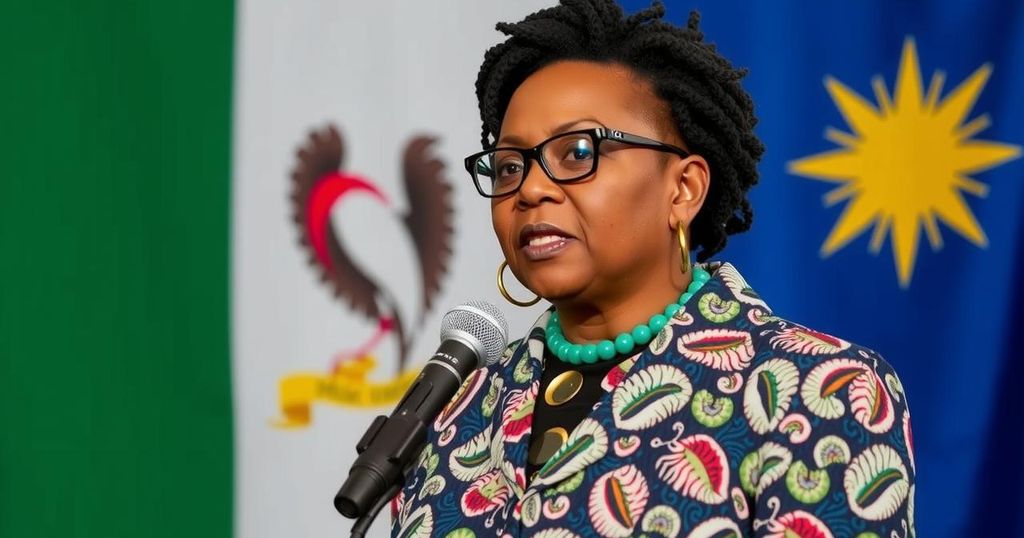Namibia on the Brink of Electing Its First Female President in Historic Elections

Namibia might elect its first female president, Vice President Netumbo Nandi-Ndaitwah, in the elections scheduled for November 27, 2024. Approximately 1.4 million voters are registered, with SWAPO leading in early polls against allegations of corruption. Nandi-Ndaitwah’s campaign focuses on job creation and women’s rights, amidst a competitive electoral landscape influenced by broader political shifts in southern Africa.
Namibia is poised to potentially elect its first female president, with Vice President Netumbo Nandi-Ndaitwah as the leading candidate in the upcoming elections on November 27, 2024. Approximately 1.4 million individuals, nearly half of the nation’s eligible voters, are registered to participate, as 15 political parties vie for control of the presidency and the National Assembly. Nandi-Ndaitwah’s party, the ruling South West Africa People’s Organization (SWAPO), has maintained prominence since Namibia’s independence in 1990. Despite facing challenges over allegations of corruption within its ranks, early polling suggests a favorable outcome for Nandi-Ndaitwah. However, political analysts note the necessity for SWAPO to connect with younger voters, who prioritize governance and accountability over historical affiliations with liberation movements. Nandi-Ndaitwah, aged 72, has articulated ambitious plans aimed at reducing youth unemployment and addressing critical issues like equal pay and reproductive rights, should she assume the presidency. The political landscape is becoming increasingly competitive, with opposition parties, such as the Independent Patriots for Change and the Affirmative Repositioning party, actively campaigning against SWAPO. Recent electoral shifts across southern Africa have reshaped the political structures, highlighting the potential for significant change in Namibia as well.
In recent years, the political climate in Namibia has shifted, with the ruling SWAPO party facing criticism due to allegations of corruption and a decline in its traditional voter base. The upcoming elections represent a crucial juncture not only for Nandi-Ndaitwah’s aspirations but also for evaluations of governance and accountability within SWAPO. Nandi-Ndaitwah’s commitment to address issues such as unemployment and women’s rights resonates in a socio-political context where newer generations are demanding substantive governance rather than mere allegiance to historical narratives. Furthermore, the performance of SWAPO will be observed keenly in light of broader changes across southern Africa where other ruling parties have recently lost their long-held dominance, suggesting a potential shift in political power dynamics.
The upcoming presidential elections in Namibia may represent a historic moment wherein Vice President Netumbo Nandi-Ndaitwah could ascend to the nation’s presidency as its first female leader. With a substantial electorate preparing to cast their votes, the implications of this election extend beyond individual leadership; they may signal systemic change in governance and the responsiveness of political entities to the aspirations of younger demographics. The heightened competition from opposition parties further underscores the need for SWAPO and its candidate to evolve and resonate with a more diverse electorate moving forward.
Original Source: apnews.com







